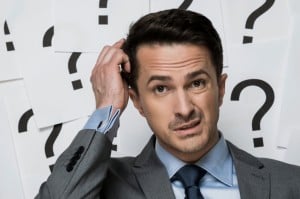[ad_1]
 “As an attorney, plagiarism is your friend.” A senior partner delivered that message to my class of incoming associates in our first few weeks on the job. After years and years of being taught to fear plagiarism as an academic crime, the firm wanted to drill home that exercising originality in word choice is often damn near malpractice.
“As an attorney, plagiarism is your friend.” A senior partner delivered that message to my class of incoming associates in our first few weeks on the job. After years and years of being taught to fear plagiarism as an academic crime, the firm wanted to drill home that exercising originality in word choice is often damn near malpractice.
In a common law system, copying what’s worked before is sort of the whole point.
IP boutique Hsuanyeh Law Group sued Winston & Strawn this week alleging a copyright violation over a brief.
Advertising attorney Rob Freund flagged the suit on social media.
Hsuanyeh and Winston both represented parties in patent infringement actions against the same actor in the Eastern District of Texas. Hsuanyeh filed a Rule 12 motion on August 23. On August 24, Winston filed a Rule 12 motion on behalf of its client echoing the Hsuanyeh motion. Hsuanyeh then ran to secure a copyright registration on August 30 and now demands statutory damages.
The cases cited by Hsuanyeh are… suspect. White v. West DOES say that briefs can be subject to copyright, but it’s about Westlaw publishing — and therefore profiting off — publicly filed legal briefs. Nothing about the logic of the case would carry over to filing a copycat brief. Moreover, the White court concluded that while briefs are theoretically copyrightable, publishing them on Westlaw amounted to fair use, so even in that extreme circumstance the authoring lawyers had no copyright case.
Newegg is closer, involving attorneys in the same matter where the defendant lawyer ripped off materials after declining to join a joint defense agreement and therefore stealing the work without contributing to the preparation costs.
Except the crucial distinction in Newegg is that the lawyer lifted from a draft brief. Had the work product already entered the public record, it’s hard to imagine the same outcome. The facts are so specific that the attorney in Newegg is on record that “I offered someone a steak dinner if this case was ever cited or helped make anyone any money.”
But all that aside… why? What skin is it off Hsuanyeh’s noses? It’s not like they can charge Winston’s client for the work. If Winston billed its client for writing a whole brief when it just copied from another successful motion in the same court that would raise ethical issues, but copying a brief to save the client money is just good representation. Does Hsuanyeh want the recognition so prospective clients know they did the heavy lifting here? That’s a fair request, but not a reason to let law firms copyright briefs. Because where does that end? Winston may be a goliath here, but the more common application of a brief copyrighting regime will be big dogs beating up on small firms and struggling pro se litigants.
Hopefully, Newegg’s lawyer will never have to lay out for that steak dinner.
 Joe Patrice is a senior editor at Above the Law and co-host of Thinking Like A Lawyer. Feel free to email any tips, questions, or comments. Follow him on Twitter if you’re interested in law, politics, and a healthy dose of college sports news. Joe also serves as a Managing Director at RPN Executive Search.
Joe Patrice is a senior editor at Above the Law and co-host of Thinking Like A Lawyer. Feel free to email any tips, questions, or comments. Follow him on Twitter if you’re interested in law, politics, and a healthy dose of college sports news. Joe also serves as a Managing Director at RPN Executive Search.
[ad_2]




